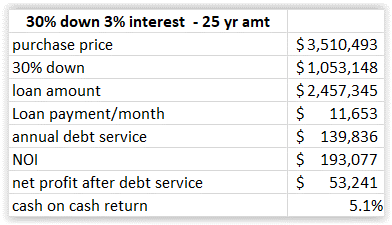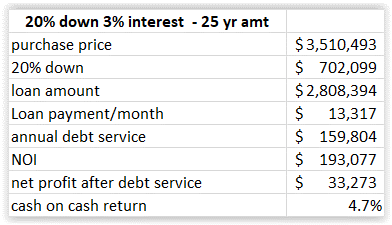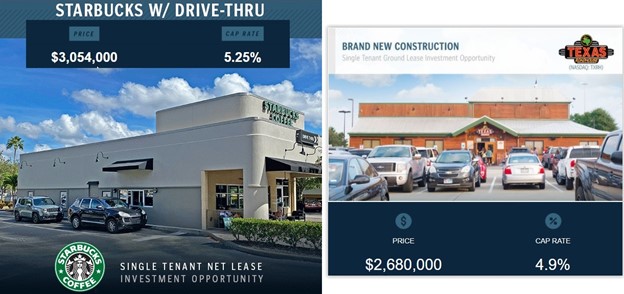As soon as Real Estate investors learn about triple net (NNN) properties, a lot of us make it a goal to own one of these elusive properties. The marketing materials often state, “No Landlord Responsibilities”. Wait, what? That sounds like 100% pure mailbox money! I made it my goal to acquire one of these gems and wondered why everyone didn’t shoot for this same goal?
There are NNN properties where the landlord truly has no responsibilities at all. This means you literally will never get a phone call from your tenant. You can purchase one of these NNN properties anywhere in the country because you are essentially purchasing a guaranteed stream of income.
The reality of the NNN lease
In reality, many NNN properties require the landlord to pay taxes, insurance, and take care of the exterior maintenance. All of these costs are charged back to the tenant in the form of CAM (common area maintenance) charges. CAM charges also have a 10-15% markup or management fee that you are allowed to tack on. Still doesn’t sound so bad; I’m in.
NNN properties are often comprised of long-term leases, corporate guarantees, and fixed renewals. Most of these are 10-year leases with multiple 5- to 10-year renewals and a 5-10% rent bump with each renewal. The leases are almost impossible to break because they are signed by the corporation.
What to look for when assessing a NNN lease
One important aspect to look at is how many years are left on the term of the lease. If there are two years left on a 10-year lease, it is not as attractive to most buyers. What if they don’t renew? A McDonalds that doesn’t renew can typically be repurposed to another fast-food chain. A larger footprint tenant like Walgreens or a Kroger can be more challenging to repurpose. A serious caveat to consider is that corporate-backed leases can be broken if the parent company declares bankruptcy. For example, few ever imagined that JCPenny would end its 120-year existence by filing bankruptcy, yet it happened.
The trade-off of the NNN lease
Over the 10+ years that I have been investing in real estate, I have looked at hundreds of NNN deals. The price you pay for having a guaranteed income with minimal responsibilities is a very low rate of return. Below is a typical single-tenant NNN or STNL (single tenant net lease) property for sale.

Let’s break down the numbers. To finance a property like this you are typically putting down 30% and amortizing the loan for 25 years. The typical interest rate in today’s climate would be 3.5% but we will be generous and use 3%. With these numbers, you can expect a 5.1% cash on cash return, as outlined below.

Now, let’s assume you are an experienced investor with a great track record, a great balance sheet, and have an established relationship with a lender. In this scenario, you may get away with 20% down. Below is what those numbers look like:

You can see that putting less money down increases your debt service and ultimately reduces your cash on cash returns.
In the final example, we will use an interest-only loan. Many investors rely on appreciation and will use this type of loan to increase their cash flow.

An 11% cash on cash return would appease many investors. In this scenario, you would likely run through the remaining years on your lease term. You would remain hopeful that your tenant’s business is thriving and they will exercise the renewal of their lease. If the lease is renewed you would get the highest sale price because of the freshly signed lease. There is the risk that the tenant has other options and they will attempt to negotiate a lower lease rate and threaten to relocate.
These examples below show typical cap rates for these STNL assets:

At the end of the day, I gave up on my dream of owning a multi-million dollar NNN property. The returns are simply too low for active real estate investors. Here are some other ideas for how to get started with commercial real estate investing.
Disclaimer: The views and opinions expressed in this blog post are provided for informational purposes only, and should not be construed as an offer to buy or sell any securities or to make or consider any investment or course of action.



